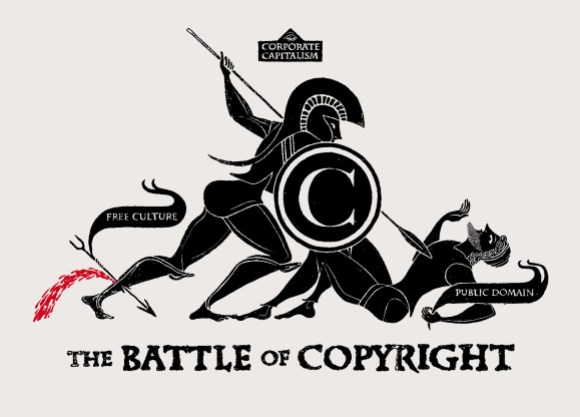
Photo by Christopher Dombres, freely licensed under CC BY-SA 2.0.
Tomorrow, government representatives from twelve countries of the Pacific Rim will meet in New Zealand to sign a 6,000 page long treaty called the Trans-Pacific Partnership (TPP). Among other things, the agreement will govern how the signatory countries protect and enforce intellectual property rights.
On Wikipedia, millions of articles are illustrated with public domain images, meaning images that are not restricted by copyright. At the Wikimedia Foundation, we believe that shorter copyright terms make it possible for more people to create and share free knowledge. We’ve previously shared some of our concerns about TPP and co-signed letters asking negotiators not to extend copyright terms and to refrain from forcing intermediaries to police their sites and block content.
Since the final text was released, various digital rights groups have condemned both the secrecy of the negotiations and the substance of the treaty. We’d like to talk about what effect TPP may have on Wikipedia, the other Wikimedia projects, and our mission to share free knowledge.
Wikipedia and its power for the creation and sharing of free knowledge are directly driven by a strong and healthy public domain. Unfortunately, TPP would extend copyright terms at a minimum of the author’s life plus 70 years, eating into the public domain. This cements a lengthy copyright term in countries where it already exists like Australia, the US, and Chile. But it’s especially worrisome for the public domain in countries like Japan, New Zealand, and Canada that now have shorter copyright terms because it means that a great number of works will not be free to use, remix, and share for another 20 years. In some countries, the lengthy copyright term is mitigated by strong and broad exceptions from copyright. But TPP makes this sort of balance optional. It only contains a non-binding exception for education, criticism, news reporting, and accessibility, like fair use in the US, that countries can choose not to enact in their national laws.
TPP tips the balance in favor of rigid copyright, at the detriment of the public domain we all share.
TPP isn’t all bad. It states that countries should not require the hosts of sites like Wikipedia to monitor their content for copyright infringement and provides for safe harbors from intermediary liability. Sites can rely on a notice and takedown system, where they remove infringing material once they get alerted by copyright holders. Yet, TPP doesn’t get this balance right either. It lacks a process for counter notices, so that users can push back when a site receives an invalid request to remove content. It also allows rightsholders to demand identifying information about users when they allege there is copyright infringements. The vague standards in TPP leave this notice and takedown process open for abuse that can chill speech.
TPP is a problematic treaty because it harms the public domain and our ability to create and share free knowledge. It is time for countries to partner for the policies and projects that benefit everyone, like the public domain, clear copyright exceptions and intermediaries empowered to stay out of content creation with good safe harbor protections.
Yana Welinder, Legal Director
Stephen LaPorte, Legal Counsel
Jan Gerlach, Public Policy Manager
Wikimedia Foundation

Can you help us translate this article?
In order for this article to reach as many people as possible we would like your help. Can you translate this article to get the message out?
Start translation